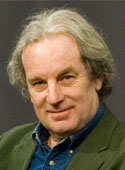By Al Norman
For the sixth year in a row, in Gov. Deval Patrick’s annual report to citizens he has said little or nothing about his vision of how to improve the lot of older and disabled individuals living in the Commonwealth.
 Since his first inaugural address in January of 2007, the governor has barely mentioned this population group — remarkable because the 60+ population in Massachusetts today is now almost one in five (19.4 percent), and is the most rapidly growing segment of the state’s population.
Since his first inaugural address in January of 2007, the governor has barely mentioned this population group — remarkable because the 60+ population in Massachusetts today is now almost one in five (19.4 percent), and is the most rapidly growing segment of the state’s population.
Older people have not historically made much of an appearance in the governor’s annual message to citizens.
In his January 2007 inaugural speech the governor told an anecdote about an 82 year old woman in Worcester who was recovering from cancer and a broken hip. The narration described how this elderly woman was determined to get down six flights of stairs to vote. “That frail 82-year-old did not walk down six flights of stairs for us to conduct the business of government the same old way,” the governor concluded. “It is time for a change.”
In his January 2008 State of the Commonwealth, there was no reference to seniors.
In his January, 2009 State of the Commonwealth, the governor noted that home health aides, “who deliver vital services,” were working “without a contract or adequate pay.” He also added later in the speech: “We are going to have to learn to lean on each other, to live as members of a community. That means check in on your elderly neighbor when it’s cold to make sure the heat is on.”
In January 2010, the governor recalled that he met a grandmother in Lynn “who told me about moving her son and daughter and their kids, nine of them strong, into her home because they’re out of work and strapped for cash.” The governor explained that this woman had lost her job, and said: “She’s not asking for much, just a chance to work to provide for her family, and a little help holding on until she can make her own way.”
In January of 2011, in his second inaugural address, the governor made a passing reference to “the service and sacrifice of our parents and grandparents.”
In his January, 2012 State of the Commonwealth, the governor returned to a common theme of generational responsibility and noted: “there are parents across our state who wonder tonight whether they will be able to do as well for their children as their parents did for them.”
He mentioned putting an end to the “fee-for-service” health care payment model — which will affect over one million Medicare beneficiaries, who by federal law have a right to Original Medicare fee-for-service. Finally, the governor said that “people in their 30s, 40s or 50s, don’t have the proper training for those jobs,” but he said nothing about people 60 and older, who still have to work to survive in this weak economy, with little or no pension income.
Over the years, the governor has given older citizens little by way of an “elder vision.” Seniors are burdened by the high cost of health care, and general living expenses. They want to remain living in their homes independently, yet find waiting lists for home care. There is much that the governor could have spoken about, but his State of the Commonwealth speech he was silent on the needs of older residents. This is not a good state of affairs.
Al Norman is the Executive Director of Mass Home Care. He can be reached at 413-773-5555 x 2295, or at info@masshomecare.org.












